Bowel cancer is the third most common cancer (about 2 million cases a year. Current figures show that he chances of cure are significantly improving but still only around 50%, survive and to achieve this, many men and women have to endure major surgery, chemotherapy, and other modern therapies, all of which have troublesome side effects.Official figures from Cancer Research UK report that over half of bowel cancers can be prevented through lifestyle choices. I believe this figure could be even higher if considering the latest data for gut health, nuts, vitamin D and diet.
.
10 important lifestyle factors to reduce the risk of bowel cancer:
.
1. Physical activity

- Promoting bowel motility, which reduces the time that harmful waste products such as carcinogens spend in the colon.
- Helping to reduce chronic inflammation, which causes cells to divide faster, increasing the risk of spontaneous genetic mutations.
- Enhances the formation of antioxidant enzymes that protect our DNA from oxidative damage such as radiation and environmental chemicals.
- Improving the muscle-to-fat ratio, reducing the risk of diabetes and insulin-like growth factor, which promotes abnormal cell growth and cancer formation.
- Strengthens the immune system so it can identify early cancer cells and kill them.
The American Cancer Society recommends 150 minutes of moderate-intensity exercise or 75 minutes of vigorous-intensity exercise per week for a preventative benefit. It is also is never too late to start, studies have also shown that regular exercise, after recovery from cancer treatments, can reduce the risk of relapse by up to a third.
-
Fruit, vegetables, grains, legumes, herbs, and spices
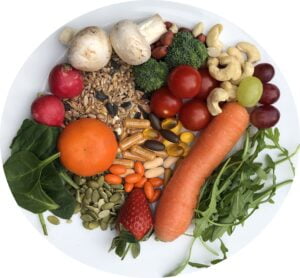
Whole grains are rich in fibre, vitamins, minerals, and other cancer-protective micronutrients. Unfortunately, refining grains to make white flour and rice removes the germ and outer fibre, reducing the health benefits. So, try to eat foods that use the whole grain such as bulgur (cracked wheat), oatmeal, and wild or brown rice. The drawback is gluten intolerance, which is becoming more commonplace, especially as we get older. Switching to sourdough bread and soaking grains overnight can help reduce gluten in wheat and other similar proteins in oats.
Vegetables are particularly good for bowel health, and these include carrots, beets, leafy green vegetables such as spinach and lettuce; cruciferous vegetables such as broccoli, asparagus, and watercress.
Fruit are excellent sources of vitamin C, fibre, and minerals. Much of the fibre and cancer-protective chemicals are found in the pulp and white core that runs through the whole fruit, so squeezing and drinking the juice will only give half the nutrients. Juicing also significantly increases the sugar content, which negates some of the benefits. So, as they say in California, “eat your fruit and juice your vegetables.”
Herbs and spices are rich in natural chemicals called phytochemicals which provide the colour, aroma and taste but also have enormous health benefits including the prevention of cancer. Phytochemicals, especially the biggest group called polyphenols, are also abundant in vegetables, salads, herbs, teas, nuts, fruits, mushrooms, seeds and legumes more often used in Asian and Mediterranean diets. The typical western diet, on the other hand, are dreadfully deficient in polyphenols, meaning we need to eat a lot more of them.Ongoing studies are investigating whether boosting these foods in supplement form could enhance their health properties. We should aim to have one or more vegetable, fruit or other phytochemical rich food with every meal of the day.
Some of the multiple mechanisms responsible for their anti-cancer benefits of phytochemical-rich foods include:
- Reducing excess inflammation in the gut
- Encouraging the production of anti-oxidant enzymes
- Blocking the formation of carcinogens from meat
- Acting as prebiotics which improves gut flora
- Slowing the transport of sugar across the gut wall reducing diabetes risk
- Reducing joint pains making exercise more comfortable
- Improving mood putting us in a better frame of mind to live healthily
Nuts provide high-quality vegetable protein, health fats, fibre, vitamins, and essential minerals such as zinc, potassium, calcium, magnesium, phytochemicals such as flavonoid and cholesterol-reducing phytosterols. Not a surprise then that studies have shown that eating a portion of nuts such as, walnuts, almonds, hazelnuts, and brazils >3 times a week reduces the risk of heart disease, diabetes, and bowel cancer by up to 25%.
-
Excess meat and processed meat

Opting for meat from grass-fed, free-range animals can offer additional advantages, such as being a rich source of omega-3 fatty acids. For young women at a higher risk of iron deficiency during their periods, including some meat in their diets can be beneficial. Interestingly, studies reveal that meat eaters who also consume ample vegetables, fruits, whole grains, and spices exhibit only a moderately increased risk, in contrast to those who avoid salads and have a particularly high risk.
It’s not just the quantity of meat that influences health, but also its quality, preservation, and cooking methods. Processed meats, including sausages, bacon, sliced ham, and canned meats, emerge as the main culprits. The European Prospective Investigation into Cancer (EPIC) study has strongly linked red meat consumption to colon cancer. A comprehensive analysis of over 140 prospective studies concluded that those consuming processed meats regularly were 30% more likely to die prematurely and 22% more likely to succumb to bowel cancer.
Processed meats often contain high levels of nitrates, preservatives, and even sugar. A noteworthy 2018 study, the UK Biobank study, linked processed meat intake (equivalent to two sausages per week) to an increased risk of bowel and breast cancer. The World Health Organization (WHO) has issued warnings regarding the cancer risk posed by processed meats due to their nitrate content.
While nitrates in plants are beneficial, as they combine with vitamin C and phytochemicals to form nitric oxide (NO) with health benefits, nitrites in meat form nitrosamines – harmful substances that damage DNA, leading to cancerous mutations. Counterbalancing the harm from nitrates can be achieved by consuming phytochemical-rich herbs, spices, and vegetables, converting nitrates to NO instead of nitrosamines. Studies have shown that marinating meat in rosemary, oregano, or parsley before cooking significantly reduces nitrosamine levels in the bloodstream.
Factors affecting nitrosamine formation include the balance of healthy bacteria in the gut. Healthy bacteria inhibit nitrosamine formation, while harmful bacteria like Helicobacter pylori create an environment conducive to it, potentially explaining the increased cancer risk associated with chronic bacterial overgrowth.
Additionally, Heterocyclic Amines (HCAs) and Polycyclic Aromatic Hydrocarbons (PAHs), toxins formed during grilling, frying, or chargrilling meat, pose health risks. HCAs result from reactions at high temperatures, while PAHs form when meat juices drip onto the fire, generating smoke that sticks to the meat’s surface. Numerous studies unanimously suggest that consuming fried, well-done, charred, smoked, or barbecued meats is linked to an increased risk of cancer, particularly colorectal, pancreatic, and prostate cancers. It’s worth noting that individual susceptibility to harm from these chemicals varies, with some being inherently more resistant while others are more sensitive.
Considering all these factors, eating less meat would have considerable health and also help the environment. That said, many people like the taste of meat and feel their lives are less fulfilled without it and evidence suggests that eating meat up to three times a week is safe. If you are a carnivore, it may be worth considering the following tips to keep meat intake at a safe level:
- Go for quality not quantity and try to limit consumption to 2-3 times a week
- Use meat for its taste, but not as the main content of the meal
- Red meat shouldn’t be your main protein, include fish, quinoa and pulses like lentils
- Eat plenty of herbs, spices and vegetables with every meal
- Avoid processed sausages, hot dogs, bacon, pies, tinned and smoked meats
- Try to go for free-range, organic or at least grass-fed animals
- Avoid barbecued or blackened meats and reduce the heat when grilling
- Remove charred portions of meat
- Avoid direct exposure of meat to flame or a hot metal surface
- Continuously turn or flip meat over when it is frying
- Consider making a casserole rather than frying or burning meat on the barbecue
-
Gum and dental hygiene

-
Excess Alcohol intake

-
Healthy gut bacteria
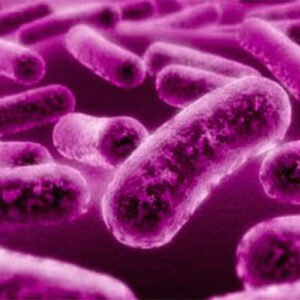
-
Smoking and smoked foods
People associate smoking with lung cancer but smokers have a 10% increased risk of bowel cancer and this increases with the number of cigarettes smoked per day. Smokers are also more likely to develop polyps which could turn into cancer if not discovered. If you smoke, try to explore strategies to help you quit and make sure you participate in regular bowel screening. Smoke can also be ingested by food. This can explain why Hungary and Slovenian, which have a tradition of home smoking meat, have the highest rate of bowel and also stomach cancer.
-
Vitamin D and bowel cancer
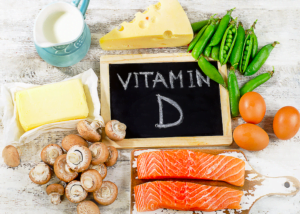
-
Calcium and Dairy Products
Milk has received a bad reputation over the years, but several studies consistently show that people who consume milk have a lower risk of bowel cancer. The challenge is that milk, cream, and cheese can be fattening, increasing the risks, so use them in moderation. Additionally, many of us are lactose intolerant, especially as we age, which can cause digestive problems. Mature cheeses like parmesan and live yogurts have most of the lactose fermented, making them usually safer to consume. Other plant-based milks, such as soy and almond milk, are also rich in calcium, considered the main protective element.
-
Being Overweight or Obese:
Being overweight or obese and carrying excess weight around your waist can increase your risk of bowel cancer by about 10%. The reasons why obesity contributes to the risk of bowel cancer are multifactorial, including associations with reduced exercise levels, poorer diets, and suboptimal gut health.
Finally, it is also really important to take part in bowel screening (which looks at blood in the pooh). More intensive screen, at a younger age is recommended for people who have a genetic susceptibility to bowel cancer via conditions called familial adenomatous polyposis (FAP) or Lynch syndrome. Also, for those with inflammatory bowel disease, such as ulcerative colitis.
In conclusion, it is inevitable that most foods and lifestyle habits will contain some harmful elements, but you have to consider the overall picture. The concentration of toxins and the accumulation of bad habits over time are the key. Your body can cope with the odd unhealthy meal, but consuming harmful foods without the healthy antidotes every day will strain it, especially when combined with smoking or a sedentary lifestyle. So, without becoming paranoid or developing food phobia, it is worth being aware of the most common lifestyle and dietary factors that empower us to avoid this malicious disease.
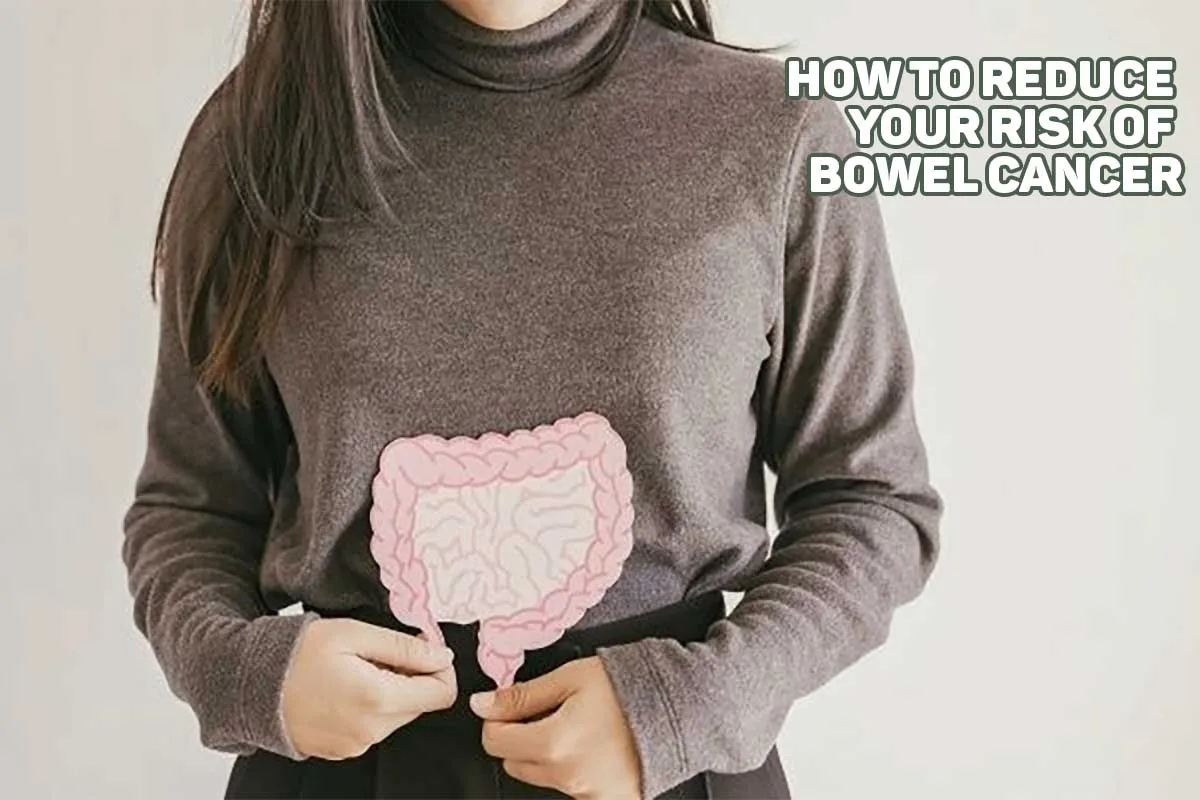

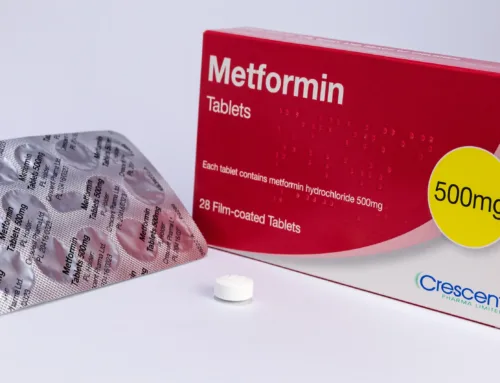


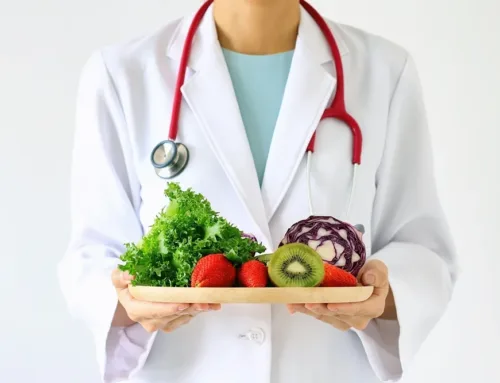
Leave A Comment